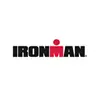A few years ago, I raced IRONMAN 70.3 Philippines and encountered conditions so hot and humid the locals nicknamed a portion of the run course "the rice cooker." As I ran through the rice paddies I could feel the steam rising from the pavement. A few miles from the finish, my mouth began to feel dry and cottony ... I was starting to feel a little overcooked. And, as anyone who has ever had to clean the bottom of a burnt pot of rice can attest, bad things happen when water runs low. I finished, but undoubtedly my race was impacted by imperfect fueling.
Memorial Hermann IRONMAN Texas is just around the corner, reminding us that hot conditions are coming our way. Increased temperatures and humidity strain the body in more ways than one. The heat index can certainly create direct race day discomfort, but where many athletes really have issues is in the realm of nutrition and hydration.
Rough Season? Here's How to Push Through
According to Brett Singer, RD, LD, of the Memorial Hermann IRONMAN Sports Institute in the Woodlands, Texas, even a two to three percent reduction in weight due to water loss can have deleterious effects. This effect is magnified in hot environments. One recent study indicated a 5 to 8 beat increase in heart rate per minute for every one percent in body weight lost to dehydration. As any type A triathlete (i.e. all of us) can tell you, that's a lot!
What can you do to execute a nutrition plan that will beat the heat? Hint: Part of your job starts during the week leading up to the race. Read on for both pre-race and race-day strategies that will keep you out of hot water ... in the fueling department, anyway.
More: Nutrition Tips From Ironman Athletes
1. Don't start in the red. Dehydration increases heat storage and reduces a person's ability to tolerate heat strain—decidedly not a good thing at the start of an endurance event. Staying hydrated in the days leading up to the race can be a challenge, given long travel, the break from normal routine and the temptation to avoid drinking so you don't have to enter the porta potty at the pre-race expo. Nevertheless, it's essential to avoid starting a race dehydrated if you want to perform at your best.
2. Keep your friends close, your water bottle closer. Most sports dietitians recommend a weakly concentrated sports drink (four to eight percent glucose concentration) in the days leading up to completion for hydration and electrolyte balance, including morning of the race. Race week, your trusty water bottle should always be close at hand.
3. Step on the scale. Any drop in your baseline weight in the days leading up to the race can indicate dehydration. A daily weigh in performed at the same time each day can keep you on track.



